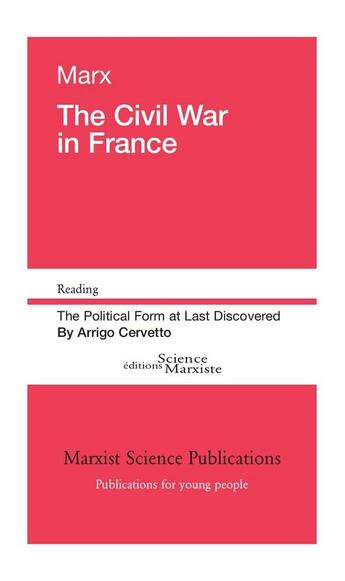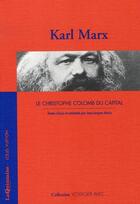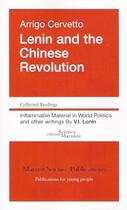Résumé:
When 150 years ago, in March 1871, the young Paris proletariat attempted to «storm heaven», fiercely put down by the bloody reaction of the French bourgeoisie - in agreement, on that occasion, with the Prussian invader to crush their common deadly enemy - it was once again clear, as is written... Voir plus
When 150 years ago, in March 1871, the young Paris proletariat attempted to «storm heaven», fiercely put down by the bloody reaction of the French bourgeoisie - in agreement, on that occasion, with the Prussian invader to crush their common deadly enemy - it was once again clear, as is written in the Manifesto, that the history of all hitherto existing societies is «the history of class struggle».
As early as 1848, the working class, which had begun to take its first steps just a few decades before, had had to pay a tragic price for its illusion that its political battle could be fought in agreement with the bourgeoisie, albeit with its more liberal and progressive currents. With the Commune, whatever remained of that ingenuous hope was swept away by cannon fire, while it was clear, on the contrary, that «workers of all countries, unite!» was not just a simple appeal to feelings of solidarity, but a fundamental scientific synthesis, a vital requirement for revolutionary strategy.
It lasted for only two months. And yet an unreplaceable legacy of experiences was concentrated in the short span of that ardent season, in the heart of Paris. It definitively resolved, when put to the test, a series of fundamental theoretical issues of socialism. It was the first attempt to create a new world: a revolution, according to what Marx stated in his first draft of the text, «not against this or that - legitimist, constitutional, republican, or imperialist - form of state», but against the state itself. It was against this «supernatural abortion of society», the tool of the «war engine of capital against labour», for the «resumption by the people for the people of its own social life».
















